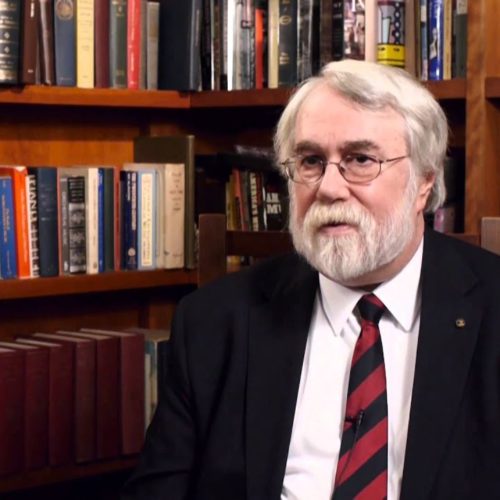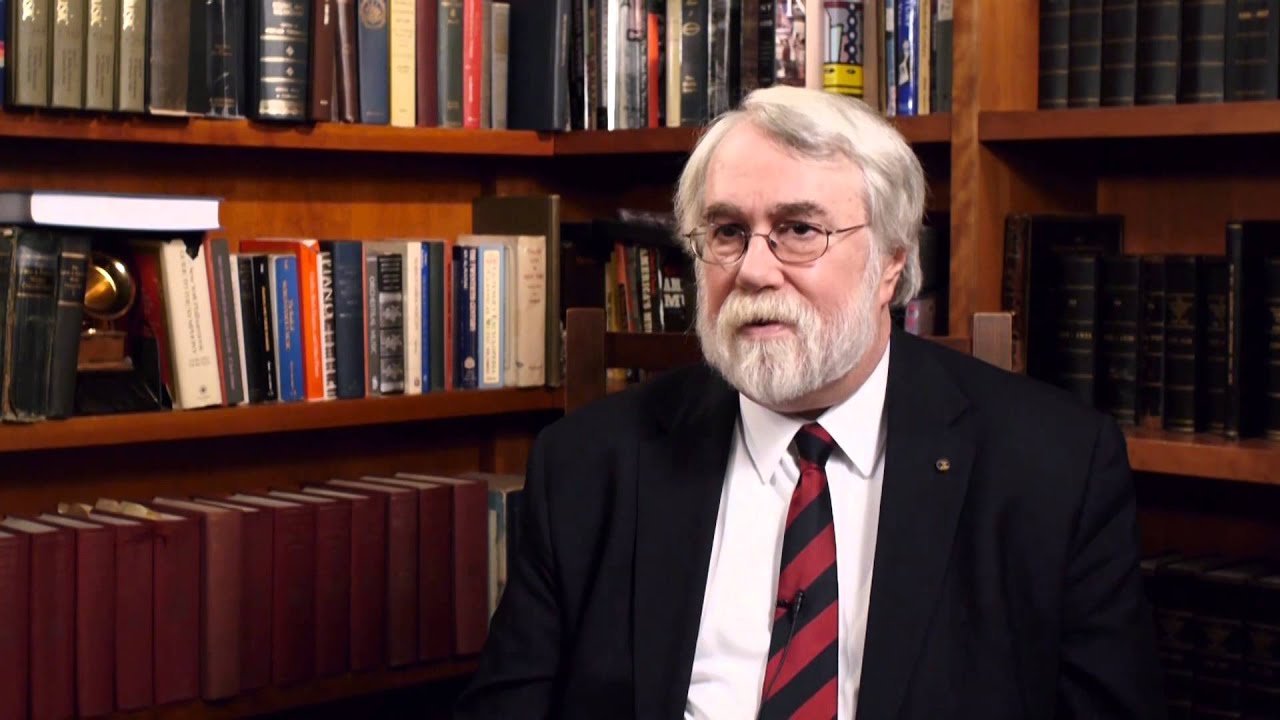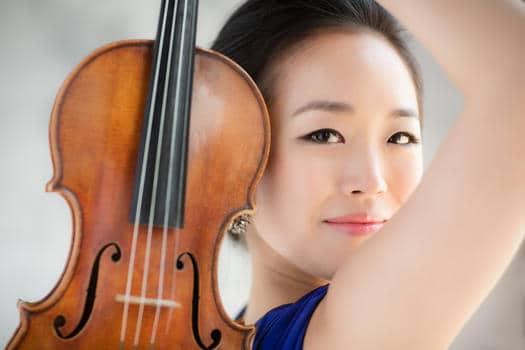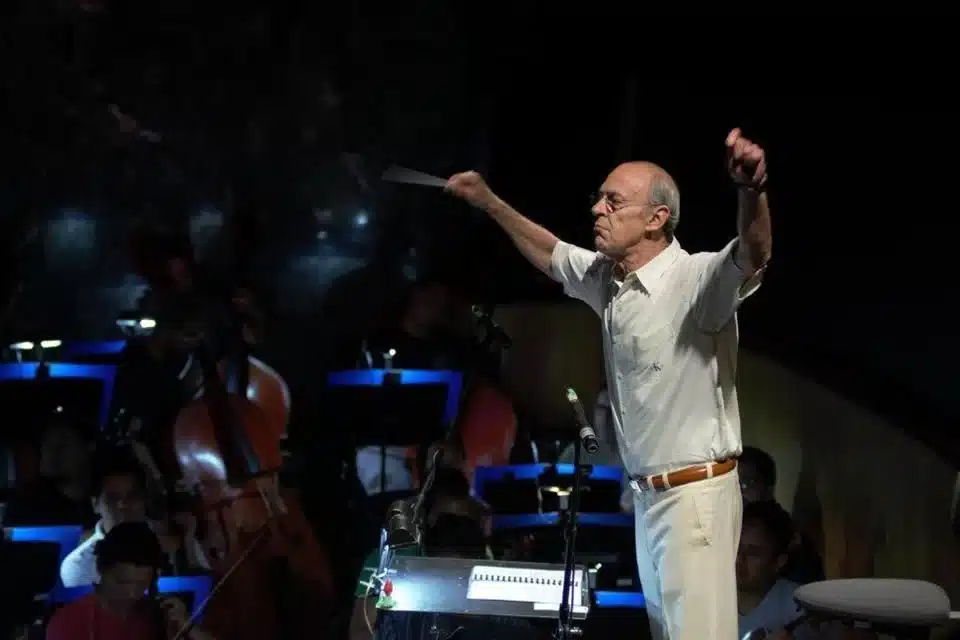Death of a great American composer, 70
mainChristopher Rouse, one of the most successful and influential US composers of his generation, has died after a long struggle with renal cancer, his friends report.
He wrote 6 symphonies, 11 concertos and a requiem. Won a Grammy and a Pulitzer.
Baltimore born, he studied with George Crumb and was composer in residence with many orchestras. Leonard Slatkin and David Zinman performed his works in Europe.
UPDATE: Composers mourn Rouse.







Correction, Rouse completed his 6th symphony. It premieres Oct. 18th and 19th in Cincinnati.
One of the true greats. His knowledge was encyclopedic. His music is individual and always honest. Chris will be dearly missed by all.
This is very sad and hits close to home. I was there with him on several occasions when he was in David Geffen Hall to attend when Alan Gilbert would play his compositions, most recently Prospero’s Room.
RIP to a very fine composer; several of his works could legitimately find their way onto a list of great 21st-century works such as The Guardian’s or Mr Lebrecht’s.
Oh, so sorry to hear this. The farther past 50 I get, the younger 70 seems. Who knows how much more music he had left to write?
There is a new symphony coming next month.
Terrible story, Rouse was a serious and highly talented composer.
Yes he was. One of the string quartets is especially good, I think No. 2 but not sure.
Rest peacefully, Chris. Enjoyed our chats these past few weeks. Go now and create more beautiful music, and fun times with Steve, and give him a kiss from me.
A very personal reflection about a composer and a friend, with whom I had a long series of correspondence and co-operation:
When I was laid on the operation table for a Whipple operation for pancreatic cancer (an operation which turned out to be totally unnecessary, since I didn’t have cancer at all), I was told that the operation itself had a 5% risk of being fatal. I then negotiated a deal that I was allowed to bring a recording to the operation room and listen to a specific piece of music, which then, if I died, would be the very last thing I heard (I made a sign at the end, upon which I was taken under by the anasthetist in a matter of seconds).
That piece was the 5th and last movement of Chris’s Flute Concerto, played by my wife, Sharon Bezaly and the Royal Stockholm PO under Alan Gilbert. This Concerto, written as it was in the aftermath of the murder in 1993 of the 2-year old James Bulger, surely must be one of the most haunting pieces of music ever conceived. Chris himself was touched to the soul by this performance.
Rest in peace, my friend, and thank you for the music you have created! It will never die.
I hope that a qualified musicologist will soon write of study of the conservative turn of new American classical music that began in the 1970s, and of which Rouse was a central manifestation.
There were several differing strands of this movement, all unconnected as far as I know, but bound by some common philosophies. It might, for example, be interesting to see if there are correlations between the views of George Rochberg and the neoconservatism of Harold Bloom. Or Bloom’s stressing of the Western cannon and Rochberg’s and George Crumb’s pedagogical concepts which revealed similar approaches of immersion in mainstream musical literature. Did these and other neoconservative composers embrace neoconservatism’s concepts of traditional practices and literature while rejecting neoconservatism’s political values?
John Corgliano was another example of this movement. Why was he more widely embraced than Rochberg?
Another manifestation was the Postmodernism of the Yale School of Music’s composition department which embraced to some extent the pop-muisic-industrial-complex. Was this market orientation related to conservative values of neoliberlaism’s market fundamentalism? How did they embrace these traditional market values while seeming to maintain progressive social values?
Can one connect popular minimalists like Reich, Adams, and Glass to neoconservative aesthetics divorced from neoconservative politics?
Why has this more traditionalist approach to music been so strongly rejected by continental Europeans?
Interesting questions, though I’m not convinced by the inclusion of George Crumb as any kind of conservative, neo- or otherwise. True he is deeply involved with the grand European lineage, but only in his roots, not specifically in the sound or the workings of his uniquely personal musical world.
Full disclosure: I worked closely with both Georges at Penn ca 1970 and know the music of both of them quite extensively.
Catching up with this very late. I also studied with George for several years. Even though his music is not as obviously related to conservative musical concepts as his colleague’s George Rochberg, it is still deeply imbued with and informed by a deep immersion in the Western canon as you note. Mahler, Debussy, and Ives are some of the most obvious examples, and allusions to their music and their musical concepts are clearly observable in his work. This very much sets George Crumb apart from many, if not the vast majority, of other more experimental (for lack of a better term) composers of his particular generation. This also affected his teaching and is notable in the more conservative bent of many of his students such as Christopher Rouse, Steven Jaffe, and Jennifer Higdon. Their more conservative musical concepts were no accident. They were strongly informed by George Crumb’s teaching.
Corigliano wrote more integrated music than Rochberg, whose music often shows incompatible combinations of stylistic contexts.
That (American) composers began to write more tonal music, inevitably led them to either the entertainment industry (with mostly disastrous results, from an aesthetic point of view), or more traditional styles, i.e.: tonality is something that developed in the past because it is the normal way of musical development. Thus, when modernist ideologies were found wanting, the past got explored. Nothing wrong with that and it has nothing to do with ‘conservatism’. Is using the English language ‘conservative’ because it was developed in the past? If the return towards tonality and tradition is looked at politically, one gets into knots. The musical tradition is not something prescriptive, but something dynamic, and rooted in nature… to treat it historically and politically distorts its nature. There are too many elements in the Western musical tradition which are atemporal, like mathematics, to be considered as a mere historic phenomenon.
What am I saying? It’s all in my book:
https://www.amazon.com/Classical-Revolution-Thoughts-Century-Expanded/dp/0486814483
(If I had known Rouse’s work better, I would have included him in the book.)
And then, in Europe there are also contemporary composers returning to tonality and tradition, in very free and different ways: Nicolas Bacri, Richard Dubugnon, Thierry Escaich, GUillaume Connesson, David Matthews, James Francis Brown – in France and England. Germany still cultivates postwar taboos, because Hitler loved Bruckner, Wagner and Léhar, so it’s sonic art all over the place where the classical tradition was born.
Then there is the mining research of musicologist Herbert Pauls (Two Centuries in One) and of Michael Haas with his Forbidden Music book and blog, demonstrating that the tonal traditions – many of them – that florished in prewar days, never really died and continued to be written, often for the drawer, but being excavated today:
https://forbiddenmusic.org/
So, traditional/tonal music continued to be written and much of it is good, it only was pushed out of sight by modernism. So, Rouse was not a new phenomenon, neither was Rochberg, they only turned to common sense and discovered musical reality on their own.
It is like mathematics being rediscovered after a period when it was forbidden by the church in some idiotic medieval kingdom and had to go underground, like ‘subversive’ novels in Soviet Russia.
Whether or not Rouse’s music will ever find a firm foothold in the repertoire is a discussion for another generation. I would hope that there are audiences who embrace his style, but given the state of music listening these days, I’m not too optimistic. Among other reasons for his music, and that of his contemporaries, failing to take hold is that the music is utterly beyond the ability of amateur and less than first-rate orchestras to perform. But wouldn’t it be nice if after next year’s Beethoven orgy being held by every orchestra in sight, that we could hear more of Rouse, Rochberg, Corigliano, and other more-accessible moderns?
This is very sad news. I got to know his music via the symphonies of Allan Pettersson. Rouse was a great fan of his music and there is the same depth in their works.
Of course, his Flute Concerto with its beautiful elegiac 3rd movement in memory of James Bulger will always be special in the UK. Thanks go to Alan Gilbert, Marin Alsop and others for promoting his wonderful orchestral pieces.
He truly was a fabulous composer ! Wish I had discovered him sooner . RIP
A hack. Mahler, Hindemith, Poulenc, Roussel, Milhoud, Billy Goldenberg, Harry Sukman, Shostakovich etc all mashed up in a music blender rendering it totally unmemorable.
God forbid that a composer should absorb influences from others. Like that hack Mahler with his “theft” from Hans Rott, his cribbing from Wagner, and his unacknowledged debt to the klezmer bands in Iglau.
There’s a time and a place for this, but not here, and not now. De mortuis nil nisi bonum dicendum est, for heaven’s sake!
A great and original voice is stilled and we are poorer for it. The Washington performances of Symphony 1 (Philadelphia/Eschenbach) and Symphony 2 (National Symphony/Slatkin) were deeply communicative.